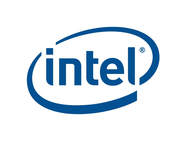Theme:
The seventh CLSAC workshop will examine the theory and practice of high consequence analytics at scale in industry, science, defense, and law enforcement. Using predictions, classification, discovered relationships, and decision sets, high consequence analytics create actionable insights that impact human life, critical infrastructure, national economies, international relationships, and social institutions. This year’s focus will examine the unique nature of high consequence analytics at scale from the perspective of taking action, understanding how the proposed action was derived, the critical sources of data, and the unique systems-level challenges of building High Consequence systems. These systems constitute unique software and hardware environments capable of handling large data sets with hard predictive deadlines. They must be credible, trustworthy, scalable, resilient, and resistant to attack. The results must reflect high confidence.
CLSAC brings together thought leaders across industry, government, and academia to discuss critical challenges for high consequence analytics. Important questions include:
The seventh CLSAC workshop will examine the theory and practice of high consequence analytics at scale in industry, science, defense, and law enforcement. Using predictions, classification, discovered relationships, and decision sets, high consequence analytics create actionable insights that impact human life, critical infrastructure, national economies, international relationships, and social institutions. This year’s focus will examine the unique nature of high consequence analytics at scale from the perspective of taking action, understanding how the proposed action was derived, the critical sources of data, and the unique systems-level challenges of building High Consequence systems. These systems constitute unique software and hardware environments capable of handling large data sets with hard predictive deadlines. They must be credible, trustworthy, scalable, resilient, and resistant to attack. The results must reflect high confidence.
CLSAC brings together thought leaders across industry, government, and academia to discuss critical challenges for high consequence analytics. Important questions include:
- What motivates the community to find solutions (e.g., what are the consequences)?
- What requirements are imposed by the scale of the data and the variety of data sources available?
- What are the privacy and other ethical requirements of using such a system?
- How do we determine whether or not action should be taken?
- How do we audit such action?
- What do the hardware and software systems need to do to achieve these goals?
- What are the human factors?
Organizing Committee:
John Feo (PNNL)
Jim Ang (PNNL)
David Haglin (Trovares Inc.)
Richard Murphy (Micron Technology)
Ron Oldfield (SNL)
Steve Pritchard (DoD)
Tyler Simon (DoD)
T.C. Tuan (DoD)
Candace Culhane (LANL)
Jim Ang (PNNL)
David Haglin (Trovares Inc.)
Richard Murphy (Micron Technology)
Ron Oldfield (SNL)
Steve Pritchard (DoD)
Tyler Simon (DoD)
T.C. Tuan (DoD)
Candace Culhane (LANL)
2018 Sponsors
Agenda
| 2018_clsac_agenda.pdf | |
| File Size: | 368 kb |
| File Type: | |
Tuesday, October 30
|
7:00 - 8:30 am
|
Breakfast and Registration (Capitol ABC)
|
|
8:00 - 8:30 am
|
Welcome
George Cotter Award for Vision and Leadership in the Field of Data Analytics |
John Feo, PNNL
Richard Murphy, Micron Candy Culhane, LANL |
|
Keynote
|
|
8:30 - 9:15 am
|
Machine Learning to Predict Cancer Drug Response: Problems in Model Transfer and Uncertainty Quantification
|
Rick Stevens, ANL
|
|
Session 1: Applications 1
|
Tyler Simon, Moderator
|
|
9:15 - 10:00 am
|
Petabyte-Scale Cyber Security Analytics to Discover and Investigate Targeted Attacks
|
Alejandro Borgia, Symantec
|
|
10:00 - 10:15 am
|
Break
|
|
10:15 - 11:00 am
|
Steve Reinhardt, D-Wave Systems
|
|
11:00 - 11:45 am
|
Dolores Shaffer, Science & Technology Associates
|
|
11:45 - 12:30 pm
|
Panel Discussion
|
|
12:30-1:45 pm
|
Lunch (Capitol ABC)
|
|
Session 2: Software Enablers
|
Ron Oldfield, Moderator
|
|
1:45 - 2:30 pm
|
Michael Wolf, SNL
|
|
2:30 - 3:15 pm
|
How I Learned to Stop Worrying About BGL and Learned to Love the C++ (11) Standard Library
|
Andrew Lumsdaine, PNNL
|
|
3:15 - 3:30 pm
|
Break
|
|
3:30 - 4:15 pm
|
Richard A. Lethin, Reservoir Labs
|
|
4:15 - 5:00 pm
|
Panel Discussion
|
|
6:00 - 7:30 pm
|
Dinner (Capitol ABC)
|
|
Michael Mountain, Catalyte
|
|
7:30 - 9:00 pm
|
Reception (Senate AB)
|
Wednesday, October 31
|
7:30 - 8:30 am
|
Breakfast (Capitol ABC)
|
|
Keynote
|
|
8:30-9:15am
|
Engineering Automated Analytics Systems
|
Robert Bonneau, DoD
|
|
Session 3: Applications 2
|
David Haglin, Moderator
|
|
9:15 - 10:00 am
|
Back to basics: applying classic methods to the design of machine learning hardware
|
Doug Wightman, GROQ
|
|
10:00-10:15 am
|
Break (Capitol ABC Foyer)
|
|
10:15 - 11:00 am
|
Georgiy Levchuk, Aptima
|
|
11:00 - 11:45 am
|
Gowri Srinivasan, LANL
|
|
11:45 - 12:30 pm
|
Panel discussion
|
|
12:30-6:00 pm
|
Free Time (lunch and dinner on your own)
|
|
6:00-7:30 pm
|
Random Access Session (Capitol Ballroom)
Sign-up sheet will be at the registration table. Talks limited to 10 minutes. |
John Feo, Moderator
|
|
7:30-9:00 pm
|
Reception and Poster Session (Senate AB)
|
|
Poster
|
Student
|
|
Alexandra DeLucia,
Los Alamos National Lab |
|
Thomas Rolinger, University of Maryland
|
|
Sayan Ghosh, Washington State University at Pullman
|
|
Abdurrahaman Yasar
Georgia Tech |
Thursday, November 1
|
7:00 - 8:30 am
|
Breakfast
|
|
Keynote
|
|
8:30 - 9:15 am
|
The Rise of Learning Machines
|
Rich Friedrich, DoD
|
|
Session 4: Hardware Enablers
|
Candy Culhane, Moderator
|
|
9:15 - 10:00 am
|
Future memory architectures for large-scale analytics
|
Anton Korzh, Micron, Inc.
|
|
10:00 - 10:15 am
|
Break (Capitol ABC Foyer)
|
|
10:15 - 11:00 am
|
Brad Rees/Joe Eaton, NVIDIA
|
|
11:00 - 11:45 pm
|
Leonard Walstad, Pivotal
|
|
11:45 - 12:30 pm
|
Panel Discussion
|
|
12:30 - 1:45 pm
|
Lunch (Capital ABC)
|
|
Session 5: Methods and Environments
|
Jim Ang, Moderator
|
|
1:45 - 2:30 pm
|
Mark Riedl, GA Tech
|
|
2:30 - 3:15 pm
|
Travis Johnston, ORNL
|
|
3:15 - 3:30 pm
|
Break (Capitol ABC Foyer)
|
|
3:30 - 4:15 pm
|
Dustin Arendt, PNNL
|
|
4:15 - 5:00 pm
|
Panel Discussion
|
|
5:00 - 5:15 pm
|
Closing Remarks and Adjourn
|
|
5:15 - 7:00 pm
|
Reception (Senate A/B)
|














